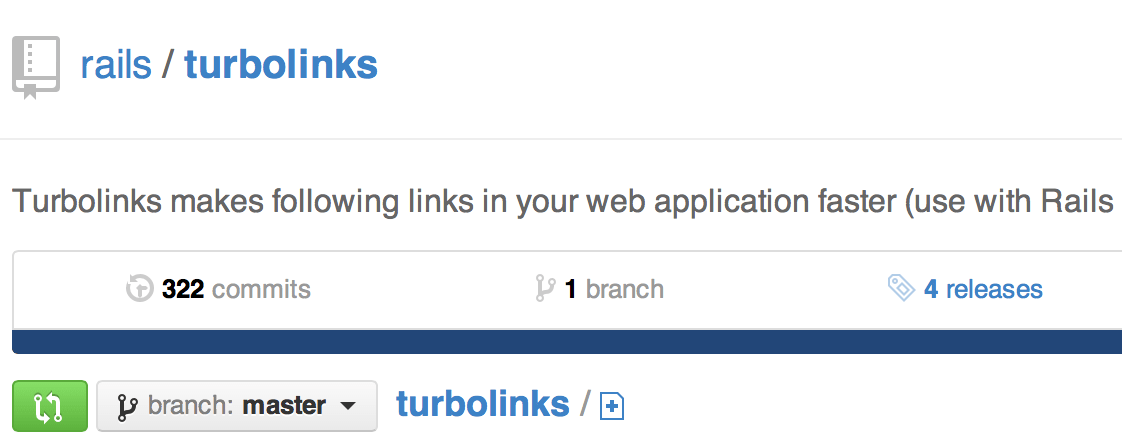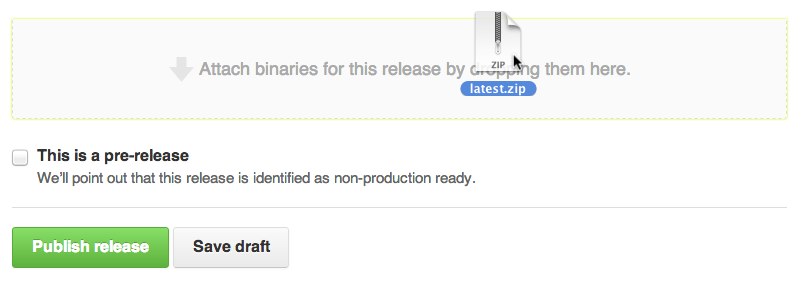Release Your Software
Today, we’re excited to announce Releases, a workflow for shipping software to end users. Releases are first-class objects with changelogs and binary assets that present a full project history beyond…
Today, we’re excited to announce Releases, a workflow for shipping
software to end users. Releases are first-class objects with changelogs
and binary assets that present a full project history beyond Git artifacts.
They’re accessible from a repository’s homepage:

Releases are accompanied by release notes and links to download the software
or source code.

Following the conventions of many Git projects, releases are tied to Git tags.
You can use an existing tag, or let releases create the tag when it’s published.

We recommend projects use Semantic Versioning, but it is
not required.
Creating Releases
As a repository collaborator, you can draft up a changelog in a release’s notes.
Any non-production releases (alphas, betas, release candidates) can be
identified through the pre-release checkbox.

You can also attach binary assets (such as compiled executables,
minified scripts, documentation) to a release. Once published, the
release details and assets are available to anyone that can view the repository.

Happy shipping!
Written by
Related posts

GitHub availability report: January 2026
In January, we experienced two incidents that resulted in degraded performance across GitHub services.

Pick your agent: Use Claude and Codex on Agent HQ
Claude by Anthropic and OpenAI Codex are now available in public preview on GitHub and VS Code with a Copilot Pro+ or Copilot Enterprise subscription. Here’s what you need to know and how to get started today.

What the fastest-growing tools reveal about how software is being built
What languages are growing fastest, and why? What about the projects that people are interested in the most? Where are new developers cutting their teeth? Let’s take a look at Octoverse data to find out.